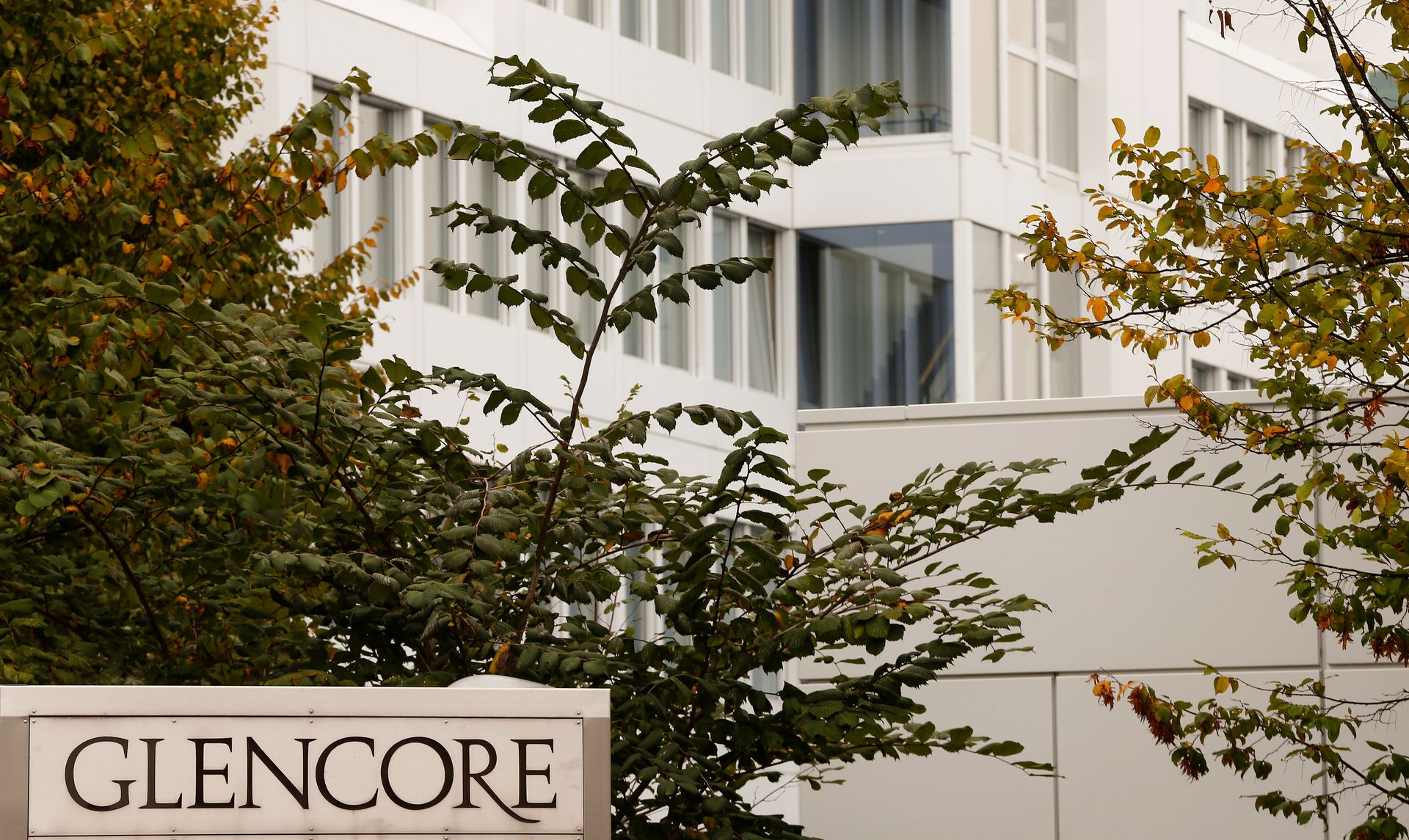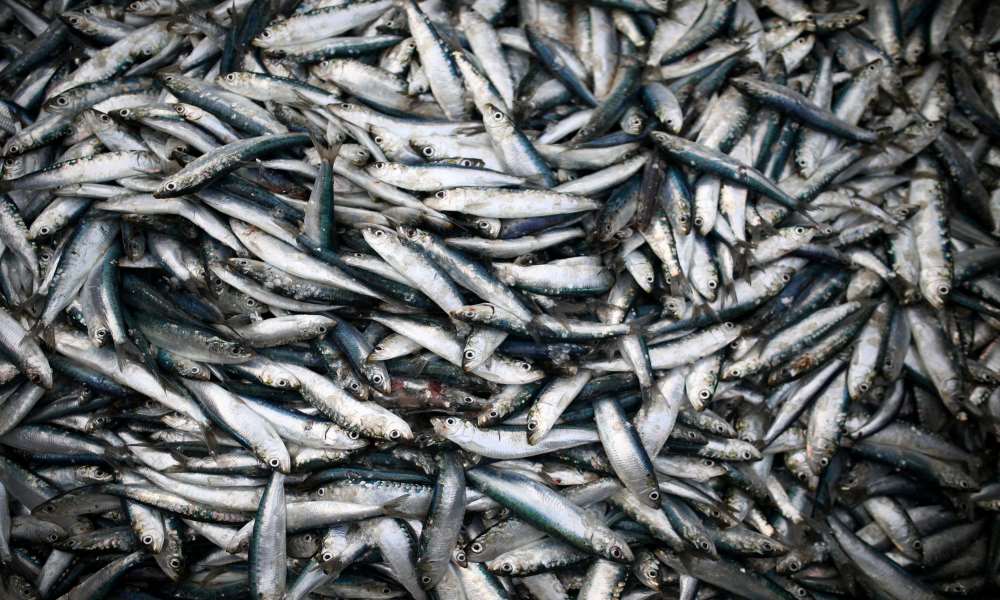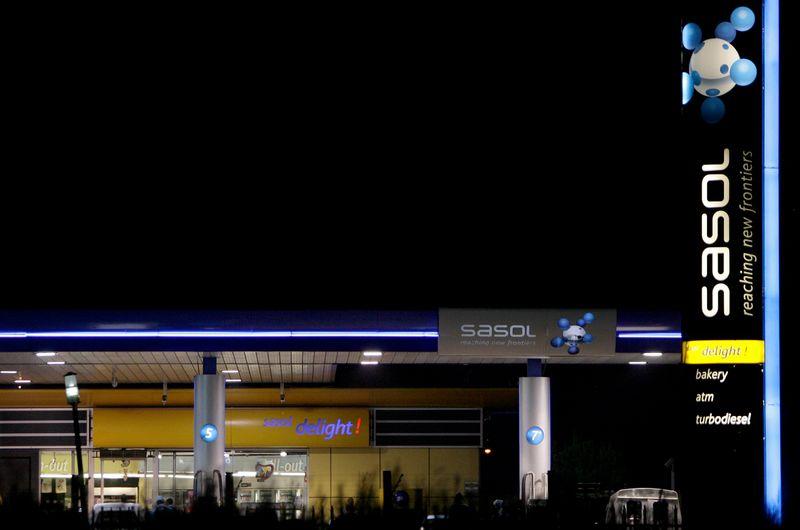COMPANY NEWS IN BRIEF
Oceana gets boost as consumers turn to tinned fish
Fishing group Oceana says it got a lift as consumers eyed its Lucky Star brand as a relatively cheaper form of protein, with robust demand helping lift revenue by double digits in its year to end-September.
Revenue rose 11% to R8.48 billion, with headline earnings rising 13% to R736.1 million, also boosted by favourable weather and fishing conditions in the US, which helped with landings. The group's total dividend fell 3% to 346c per share, with it also warning margins are under pressure from surging input costs.
Consumer demand for affordable protein and the relative value that Lucky Star provides, compared to competing proteins, ensured a strong recovery in sales in the second half, after stock constraints hampered the first-half performance, the group said.
Sales volumes in the second half increased by 8%, notwithstanding an effective 8% price increase. Total canned fish sales volumes for the year were down by 1% to 8.8 million cartons, due to the first half pressure. Cost pressures, particularly freight and tin-can costs as well as a weaker rand, made it more expensive to import frozen fish, and contributed to reduced margins.
Favourable fishing and weather conditions in the US resulted in Westbank increasing its landings by 55% to 704 million fish, with the prior year being hit by adverse conditions, notably Hurricane Ida. Sales volumes fell 10%, due to low opening inventory levels, but inventory levels closed 207% higher than the previous year, with Oceana saying it was better prepared for 2023.
On average, fishmeal prices improved by 8% and fish oil prices by 49%, in dollar terms, given global supply and demand dynamics. Rising US inflation, however, together with higher fuel and gas prices, put pressure on operating costs, the group said.-Fin24
Glencore agrees to pay R3 billion
Glencore agreed to pay the Democratic Republic of Congo US$180 million to cover all claims arising from any alleged acts of corruption by the company between 2007 and 2018.
That includes activities under investigation by the US Department of Justice and Congo’s National Financial Intelligence Unit and Ministry of Justice, Glencore said in a statement on Monday.
“Glencore is a long-standing investor in the DRC and is pleased to have reached this agreement to address the consequences of its past conduct,” Chairman Kalidas Madhavpeddi said in the statement.
Last month, Glencore was hit with a £276 million (US$340 million) penalty by a London judge after pleading guilty to coordinating a sprawling effort to bribe government officials for access to oil cargoes across Africa.
Those revelations came just six months after the London-listed company pleaded guilty in related US cases. In May, Glencore said it expected to pay around US$1.5 billion in total to resolve three investigations.-Fin24
Tharisa reports record annual profits
Tharisa, a platinum group metals (PGM) and chrome producer, has reported record profits of R2.6 billion for the 2022 financial year ended in September, on the back of record production and strong commodity markets.
The group on Monday announced a 22.7% growth in revenues of R10.9 billion, up from R8.8 billion in the previous year. Record net profit of R2.6 billion, was 35.6% higher than the R2 billion reported in the previous year.
Among the highlights for the year was a record PGM and chrome output announced in October, and a strong commodity market aided further by a weakening Rand-Dollar exchange rate.
The results have seen Tharisa exceed its dividend policy of a pay-out ratio of 17.7% of adjusted net profit after tax, with the total proposed dividend for the year on a fully adjusted basis being $0.7 (R12) per share.
The Tharisa share price was 15% higher at R26 per share in Monday morning trade. For more share price news and information click here.
The year was characterised by an extraordinary performance from the Tharisa Mine, with a strong financial performance driven by record PGM and chrome production in a highly challenging environment, said Tharisa CEO Phoevos Pouroulis.
"This has been achieved through our innovative approach to maximising the more than sixty years of life of mine of the Tharisa Mine, and the significant commitment and capabilities of the Tharisa team," he said.
Pouroulis said the year has also seen the group consolidate the foundations for the next stage of growth for Tharisa in the next decade.-Fin24
Nampak gets kick from can demand
Surging demand for beverage cans helped Nampak grow full-year revenue more than a fifth, but it swung into a net loss, amid hits from foreign exchange losses, higher interest rates and increased write downs.
Headline earnings fell 43.1% to R229 million in the year to end-September, the group said on Monday, amid a loss attributable to equity holders of R147 million, from profit of R207 million previously.
In a statement accompanying Nampak’s results for the year to September, CEO Erik Smuts said that the financial year had seen the group face both headwinds, but also look to take advantage of what tailwinds are available, with
"The South African beverage can market experienced unprecedented growth and Angolan volumes during the last quarter grew by almost 30%, exceeding our expectation. Revenue increased by 21%, lifted by higher volumes and unusually high commodity prices.
"Despite the strong contributions from our beverage cans and liquid paper business to a pleasing trading profit, an increase in foreign exchange losses, higher interest rates and increased impairments contributed to a lower net profitability."
Explaining the strong increase in revenue, which came in at R16.9 billion, Smuts said it had been lifted by higher volumes and "unusually high commodity prices caused by the Russia/Ukraine war and disrupted supply chains".-Fin24
Nando's backer Dick Enthoven passes away
Billionaire South African businessman Dick Enthoven, who played a key role in building businesses like Nando's, Hollard Insurance, Auto and General, Direct Axis, and the Spier Wine Farm, has passed away at the age of 85 after a battle with cancer.
His father, Robert, a Dutch immigrant, founded a small insurance broker in the 1950s. Hollard emerged as the largest privately-owned insurer in South Africa, and has businesses on four continents, under the management of Dick and his brother Patrick.
In the 1980s, Dick Enthoven invested in insurance start-up, Auto & General and then provided financial backing for Nando's, when it had just three restaurants in Johannesburg. Following fast growth in South Africa, Enthoven opened the Nando's franchise in the UK, and his family held a majority stake in the international businesses.
In 1993, he purchased Spier Wine Farm, which then saw a hotel development, and emerged as a centre for the arts
Enthoven was a great supporter of fine arts, especially of emerging and young South African artists. Nando's owns the world's largest collection of South African art. In 2015, the Bloomberg Billionaires Index estimated Enthoven's fortune at US$1.1 billion.
According to a Wits citation, Enthoven's favourite quote was "the gratification of wealth is not found in mere possession or in lavish expenditure, but in its wise application", from the novel Don Quixote.
Enthoven is survived by five children and 14 grandchildren. His son Adrian is chairperson of Hollard, while another son, Robby, heads Nando’s UK.-Fin24
Sasol investors give nod to its climate plans
Sasol shareholders have again overwhelmingly voted in support of the group's climate action plan, despite fierce criticisms from activist groups that the roadmap is insufficient and vague.
In a non-binding advisory vote to endorse the company's climate change management approach, which took place at the group's annual general meeting (AGM) on Friday, 94% of shareholders voted for the resolution, while almost 6% voted against it.
At last year's AGM, 96.63% of Sasol shareholders voted in favour of the group's climate action plans.
Ahead of the meeting this year, activist group Just Share, and activist law firm the Centre for Environmental Rights, had called on shareholders to downvote the climate plan's commitments which, they said "remain too vague or too distant to allow meaningful assessment".
Sasol produces synthetic fuels and chemicals using its proprietary coal-to-liquids technology, and its Secunda plant is the largest single source of greenhouse gas emissions in the world.
Sasol aims to reduce emissions by 30% by 2030 and reach net zero emissions by 2050.
The activist organisations have, however, criticised Sasol for deferring responsibility for its decarbonisation until at least 2026, and noted that failure to take adequate, timeous climate action would result in significant financial risk to the company.
Responding to the criticism at Friday's AGM, Sasol CEO Fleetwood Grobler implored shareholders to be patient.-Fin24
Fishing group Oceana says it got a lift as consumers eyed its Lucky Star brand as a relatively cheaper form of protein, with robust demand helping lift revenue by double digits in its year to end-September.
Revenue rose 11% to R8.48 billion, with headline earnings rising 13% to R736.1 million, also boosted by favourable weather and fishing conditions in the US, which helped with landings. The group's total dividend fell 3% to 346c per share, with it also warning margins are under pressure from surging input costs.
Consumer demand for affordable protein and the relative value that Lucky Star provides, compared to competing proteins, ensured a strong recovery in sales in the second half, after stock constraints hampered the first-half performance, the group said.
Sales volumes in the second half increased by 8%, notwithstanding an effective 8% price increase. Total canned fish sales volumes for the year were down by 1% to 8.8 million cartons, due to the first half pressure. Cost pressures, particularly freight and tin-can costs as well as a weaker rand, made it more expensive to import frozen fish, and contributed to reduced margins.
Favourable fishing and weather conditions in the US resulted in Westbank increasing its landings by 55% to 704 million fish, with the prior year being hit by adverse conditions, notably Hurricane Ida. Sales volumes fell 10%, due to low opening inventory levels, but inventory levels closed 207% higher than the previous year, with Oceana saying it was better prepared for 2023.
On average, fishmeal prices improved by 8% and fish oil prices by 49%, in dollar terms, given global supply and demand dynamics. Rising US inflation, however, together with higher fuel and gas prices, put pressure on operating costs, the group said.-Fin24
Glencore agrees to pay R3 billion
Glencore agreed to pay the Democratic Republic of Congo US$180 million to cover all claims arising from any alleged acts of corruption by the company between 2007 and 2018.
That includes activities under investigation by the US Department of Justice and Congo’s National Financial Intelligence Unit and Ministry of Justice, Glencore said in a statement on Monday.
“Glencore is a long-standing investor in the DRC and is pleased to have reached this agreement to address the consequences of its past conduct,” Chairman Kalidas Madhavpeddi said in the statement.
Last month, Glencore was hit with a £276 million (US$340 million) penalty by a London judge after pleading guilty to coordinating a sprawling effort to bribe government officials for access to oil cargoes across Africa.
Those revelations came just six months after the London-listed company pleaded guilty in related US cases. In May, Glencore said it expected to pay around US$1.5 billion in total to resolve three investigations.-Fin24
Tharisa reports record annual profits
Tharisa, a platinum group metals (PGM) and chrome producer, has reported record profits of R2.6 billion for the 2022 financial year ended in September, on the back of record production and strong commodity markets.
The group on Monday announced a 22.7% growth in revenues of R10.9 billion, up from R8.8 billion in the previous year. Record net profit of R2.6 billion, was 35.6% higher than the R2 billion reported in the previous year.
Among the highlights for the year was a record PGM and chrome output announced in October, and a strong commodity market aided further by a weakening Rand-Dollar exchange rate.
The results have seen Tharisa exceed its dividend policy of a pay-out ratio of 17.7% of adjusted net profit after tax, with the total proposed dividend for the year on a fully adjusted basis being $0.7 (R12) per share.
The Tharisa share price was 15% higher at R26 per share in Monday morning trade. For more share price news and information click here.
The year was characterised by an extraordinary performance from the Tharisa Mine, with a strong financial performance driven by record PGM and chrome production in a highly challenging environment, said Tharisa CEO Phoevos Pouroulis.
"This has been achieved through our innovative approach to maximising the more than sixty years of life of mine of the Tharisa Mine, and the significant commitment and capabilities of the Tharisa team," he said.
Pouroulis said the year has also seen the group consolidate the foundations for the next stage of growth for Tharisa in the next decade.-Fin24
Nampak gets kick from can demand
Surging demand for beverage cans helped Nampak grow full-year revenue more than a fifth, but it swung into a net loss, amid hits from foreign exchange losses, higher interest rates and increased write downs.
Headline earnings fell 43.1% to R229 million in the year to end-September, the group said on Monday, amid a loss attributable to equity holders of R147 million, from profit of R207 million previously.
In a statement accompanying Nampak’s results for the year to September, CEO Erik Smuts said that the financial year had seen the group face both headwinds, but also look to take advantage of what tailwinds are available, with
"The South African beverage can market experienced unprecedented growth and Angolan volumes during the last quarter grew by almost 30%, exceeding our expectation. Revenue increased by 21%, lifted by higher volumes and unusually high commodity prices.
"Despite the strong contributions from our beverage cans and liquid paper business to a pleasing trading profit, an increase in foreign exchange losses, higher interest rates and increased impairments contributed to a lower net profitability."
Explaining the strong increase in revenue, which came in at R16.9 billion, Smuts said it had been lifted by higher volumes and "unusually high commodity prices caused by the Russia/Ukraine war and disrupted supply chains".-Fin24
Nando's backer Dick Enthoven passes away
Billionaire South African businessman Dick Enthoven, who played a key role in building businesses like Nando's, Hollard Insurance, Auto and General, Direct Axis, and the Spier Wine Farm, has passed away at the age of 85 after a battle with cancer.
His father, Robert, a Dutch immigrant, founded a small insurance broker in the 1950s. Hollard emerged as the largest privately-owned insurer in South Africa, and has businesses on four continents, under the management of Dick and his brother Patrick.
In the 1980s, Dick Enthoven invested in insurance start-up, Auto & General and then provided financial backing for Nando's, when it had just three restaurants in Johannesburg. Following fast growth in South Africa, Enthoven opened the Nando's franchise in the UK, and his family held a majority stake in the international businesses.
In 1993, he purchased Spier Wine Farm, which then saw a hotel development, and emerged as a centre for the arts
Enthoven was a great supporter of fine arts, especially of emerging and young South African artists. Nando's owns the world's largest collection of South African art. In 2015, the Bloomberg Billionaires Index estimated Enthoven's fortune at US$1.1 billion.
According to a Wits citation, Enthoven's favourite quote was "the gratification of wealth is not found in mere possession or in lavish expenditure, but in its wise application", from the novel Don Quixote.
Enthoven is survived by five children and 14 grandchildren. His son Adrian is chairperson of Hollard, while another son, Robby, heads Nando’s UK.-Fin24
Sasol investors give nod to its climate plans
Sasol shareholders have again overwhelmingly voted in support of the group's climate action plan, despite fierce criticisms from activist groups that the roadmap is insufficient and vague.
In a non-binding advisory vote to endorse the company's climate change management approach, which took place at the group's annual general meeting (AGM) on Friday, 94% of shareholders voted for the resolution, while almost 6% voted against it.
At last year's AGM, 96.63% of Sasol shareholders voted in favour of the group's climate action plans.
Ahead of the meeting this year, activist group Just Share, and activist law firm the Centre for Environmental Rights, had called on shareholders to downvote the climate plan's commitments which, they said "remain too vague or too distant to allow meaningful assessment".
Sasol produces synthetic fuels and chemicals using its proprietary coal-to-liquids technology, and its Secunda plant is the largest single source of greenhouse gas emissions in the world.
Sasol aims to reduce emissions by 30% by 2030 and reach net zero emissions by 2050.
The activist organisations have, however, criticised Sasol for deferring responsibility for its decarbonisation until at least 2026, and noted that failure to take adequate, timeous climate action would result in significant financial risk to the company.
Responding to the criticism at Friday's AGM, Sasol CEO Fleetwood Grobler implored shareholders to be patient.-Fin24








Kommentar
Allgemeine Zeitung
Zu diesem Artikel wurden keine Kommentare hinterlassen